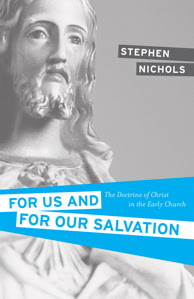The Joyous Faith of the Magi: Matthew 2:1-12
The incorrect question would be, “What works have I done?” so that the question becomes, “Does Jesus love me more than last year?”
Jesus loves you the same if you are one of His own. This doesn’t change. The problem is that we have so many religious people and their list of rules to follow that it becomes more about the list than loving Jesus who saved you.
As we come to this Christmas season, ask yourself, “Do I love Jesus more?” “Do I commune with Jesus more?” “Do I fellowship with Jesus more?”
Maybe a better question: Do I even know Jesus?
We are going to see this text placed before us of the Magi, or wise men. I want you to ask these questions: Do I know Jesus? Am I saved from my sin? If I can say yes, “Am I closer to Jesus this year?” and “Where do I need to grow?”
Look to Matthew 2:1-12
We will look to two things:
The Prophecies of Christ
Reacting to Christ
Prophecies of Christ
As we come to this text, we have something occurring that is causing an uproar and that is found in the Magi, or wise men, coming and asking where the King of the Jews was because of prophecy.
Remember where we are here in the context of history. What just happened for 400 years between the prophet Malachi and John the Baptist? Nothing. God was silent.
And there was a great tribulation in Israel, such as was not since the day, that there was no prophet seen in Israel.
1 Maccabees 9:27
Israel went through a time of silence and this was really just like any other day. Then, all of the sudden, Magi come in and start inquiring, “Where is He who has been born King of the Jews?”
They come based on prophecy. So, what was this prophecy that they spoke of?
“I see him, but not now;
I behold him, but not near;
A star shall come forth from Jacob,
A scepter shall rise from Israel,
And shall crush through the forehead of Moab,
And tear down all the sons of Sheth.
Numbers 24:17
There are all kinds of speculation what this star was, but I believe that it was more of a supernatural star, like the Shekinah glory seen in Exodus 13:21,22 because of the movement of the star and because it didn’t have a central location:
The LORD was going before them in a pillar of cloud by day to lead them on the way, and in a pillar of fire by night to give them light, that they might travel by day and by night.
He did not take away the pillar of cloud by day, nor the pillar of fire by night, from before the people.
Exodus 13:21,22
The next prophecy we see is when Herod is getting nervous and asked where the Messiah was to be born, and they stated: in Bethlehem of Judah.
This comes from Micah 5:2 and John 7:42 also shows that this was all of Israel’s expectation:
2 “But as for you, Bethlehem Ephrathah,
Too little to be among the clans of Judah,
From you One will go forth for Me to be ruler in Israel.
His goings forth are from long ago,
From the days of eternity.”
Micah 5:2
This ruler to come is told even more specifically in Isaiah 7:14 and Isaiah 9:6 where it states:
14 “Therefore the Lord Himself will give you a sign: Behold, a virgin will be with child and bear a son, and she will call His name Immanuel.
Isaiah 7:14
6 For a child will be born to us, a son will be given to us;
And the government will rest on His shoulders;
And His name will be called Wonderful Counselor, Mighty God,
Eternal Father, Prince of Peace.
Isaiah 9:6
Think of this: The ruler that was to come was going to be coming from eternity, from Bethlehem, born from a virgin, called Immanuel, or God with us, and will be called Mighty God, Eternal Father.
All this was going to be coming when the star rises from Jacob. This is the one who will be king, ruler, and who will save His people from their sins.
So, what’s the reaction? Maybe better put: what is our reaction to this?
Reacting to Christ
We have two types of people here: The powerful and religious and the pagan. Let’s look at the two:
First, the powerful and religious: This would include Herod, the scribes and the chief priests.
When the Magi come, what happens with Herod and the religious people? They are troubled.
This word is also translated in other places in the New Testament as meaning to be “terrified, to be stirred up, to be anxious”
So, we know that the first thing that these people do is become troubled instead of exceedingly joyous that the Messiah might be here. For Herod it was a power trip not wanting to give up his place of power. For the religious, I think it was something a lot more deep. They were anxious because they knew their deeds and knew that they were dark:
Look to 1 Thess 5:1-11
How did the Magi, who were pagan’s with no right to heaven, or God, if you asked the Jews, how did they react to the star, the prophecy that was coming true?
Look at Matthew 2:1 again:
1 Now after Jesus was born in Bethlehem of Judea in the days of Herod the king, magi from the east arrived in Jerusalem, saying,
2 “Where is He who has been born King of the Jews? For we saw His star in the east and have come to worship Him.”
Matthew 2:1-2
Notice that it does not say that they went straight to Herod or even the priests, but they arrived and were "saying" in Jerusalem. This word “saying” means to "continually inquire". They were going from place to place, asking the people, “Where is the Messiah?” They couldn’t wait to see him, they couldn’t wait to see God, they couldn’t wait to see the babe born of a virgin who was from eternity.
Why did they want to see the baby? They desired to worship Him. They were here, they were pagans, but they believed that the God, who created the universe, was here to be their king of all the earth, so they wanted to worship God.
The Magi are the godly ones here. They are the ones who were waiting for the star to appear for hundreds of years, yet notice what the Scribes and Priests say:
Oh, yeah…the Messiah…here is what the prophecy says
It is almost carelessness. There is this great commotion and it would seem that the religious could care less that the One that they have been reading about in the Scriptures could actually be amongst them. Notice what Herod does: he gathers all the religious people and it says that he “inquires” where he is to be born: This word inquire can denote “demanding”
Then look what happens. The scribes and priests give their report and Herod sends for the Magi. These Magi search diligently in Jerusalem for the child, so they can worship Him. They search so much that Herod gets wind of it, sends for them and still the Magi don’t back down. They come to the courts of the ruler of Jerusalem and tell him that they want to go and worship another ruler, another king, another who will be king of the earth. These Magi have so much tenacity to worship Jesus they don’t care what they have to do to find Him.
So, who would you think would be the most excited about the coming of the Messiah? Those who have devoted themselves to God’s Scriptures or those who are pagan and devoted themselves to the devil’s magic?
Who ends up doing the Lord’s work of worshiping the Messiah? The religious or pagan?
This is the difference of religious people and those who truly follow Jesus: Religious people are really there for themselves trying to please God without Jesus, but with their own works and views of who God is and wants, where those for Christ just want to worship, be with Jesus, and ask Him what He desires!
Notice here:
8 And he sent them to Bethlehem and said, “Go and search carefully for the Child; and when you have found Him, report to me, so that I too may come and worship Him.”
9 After hearing the king, they went their way; and the star, which they had seen in the east, went on before them until it came and stood over the place where the Child was.
10 When they saw the star, they rejoiced exceedingly with great joy.
11 After coming into the house they saw the Child with Mary His mother; and they fell to the ground and worshiped Him. Then, opening their treasures, they presented to Him gifts of gold, frankincense, and myrrh.
Matthew 2:8-11
We find out in verse 13 that Herod is a liar and self motivated to find the child so that he might kill the Christ, the promised One.
So, Herod’s response to the child is not only terror and ignorance, but now we find his response is to try and kill the baby. What he didn’t realize is that his wishes would come true, but it would not happen for another 33 years.
So, do we have the religious going to see Jesus, to see the Christ? No…we see the Magi.
When the Magi again see the star and it is over where the Child is, look what happened. They rejoiced exceedingly with great joy. This was what they were searching for, this is what they couldn’t wait to see. Their mission was almost over. Their lives almost complete. This joy is the same joy that is of a believer when he realizes that he has been sealed with the Spirit of Christ. This is the fruit of the Spirit in Galatians 5:22 of love, joy, peace, patience. This is the joy that John the Baptist said he had in just hearing Jesus’ voice. This is the joy that Christ prayed in the high priestly prayer in John 17 that all his people would have.
Who has this joy? The religious that should have been joyous, or the pagan Magi, who have nothing to do with Jesus? It is the Magi. For the religious, instead of joy, are troubled, not joyous. Know for certain, the Magi’s joy is not a reaction to the star, this isn’t simply happiness, this is an overwhelming joy of completeness. To discern a full description of the Magi and us is found in John 1:10-13:
He was in the world, and the world was made through Him, and the world did not know Him. He came to His own, and those who were His own did not receive Him. But as many as received Him, to them He gave the right to become children of God, even to those who believe in His name, who were born, not of blood nor of the will of the flesh nor of the will of man, but of God.
John 1:10-13
So, because of this joy, what do the Magi do? The fell down and worshiped. This is not just a ceremonial worship reserved for worldly kings, but we see with the determination, the seeking, the rejoicing and joy, they could finally do the one thing that they said they wanted to do: worship the King.
This term “fell” connotates the fact that they literally fell prostrate like a dead man. They saw the Child and they were overwhelmed with the fact that after 1400 years (that was the approx. year Numbers was written) that God should choose these specific Magi to be the ones to find the Christ child, to be able to see Him face to face, to stare into his eyes, to see God face to face, to see the Word that became flesh, the One who was to bring salvation, the One who would be their King. These Magi had probably been handed down this prophecy of the Christ child from generations to generations and they were the ones whom God chose to finally take part.
So, we have the Magi, who probably numbered in the hundreds, standing outside this small house, they see the Child who was promised long ago and they couldn’t bear it, they couldn’t control themselves, so they fall like dead men, like a wave in the ocean, probably close to 200 men, fall in unison, to worship Jesus.
Have you heard the song by Mercy Me, “I Can Only Imagine” when they sing:
Surrounded by Your glory, what will my heart feel
Will I dance for you Jesus or in awe of you be still
Will I stand in your presence or to my knees will I fall
Will I sing hallelujah, will I be able to speak at all
I can only imagine
To these questions from this Christian band, I believe we find the answer in Matthew 2. I think we will find ourselves a lot like the Magi. For if you are a Christian, you must take after these Magi. You have journeyed for days and years, you have wanted to just be with Jesus and see His face. You want to see the One who saved you from your sin, you want to see the One who was sacrificed like an animal on a stake so that you can be in God’s presence, you want to see the one who saved you out of the bondage of paganism into the loving arms of your God. You want to be with the one who will wipe away all your tears, who loves you because you are His own.
And when that time comes. When you see the Lamb, we will do what we have only dreamed of doing: worshiping Him at His feet as we fall like dead men.
After the Magi get done worshiping, which I can’t imagine how long they were on their faces. After all, what compels a man to finally get up and stop worshiping at the feet of Jesus, the Promised Christ? Whatever it was they got up and presented Jesus with gifts. Some make more out of these gifts than is appropriate, for they are simply gifts that were custom to give to a king. The Magi show that they believe that this King deserves full kingship and following. They believe He is the King of kings, Lord of lords, so what better way than to lay dead at his feet and worship him and give this small baby, the gifts only deserving for a king.
Notice that these Magi don’t ask anything from the Christ, yet they offer gifts to Him. They realize that just by Christ coming is enough, Jesus needs not to give them anything more, His life is enough.
Conclusion
What is Christmas to you? What are the things that we dwell on? When you think of the Christ, the Messiah, are you more troubled because you are not ready for Christ to come or are you diligently seeking Christ so that your joy may be made full, so that you can worship him with exceeding praise?
Are you more like the religious of the days that only do religious things but never have turned your life over to Jesus. Or, are you like the pagan Magi who only cared to see the Christ so that they could worship Him?
See what Revelation 22:20,21, the last verses in the Bible say:
20 He who testifies to these things says, “Yes, I am coming quickly.” Amen. Come, Lord Jesus.
21 The grace of the Lord Jesus be with all. Amen.
Revelation 22:20-21
Is this us? Is this you? Do you say, Come Lord Jesus, so I can worship you, so my joy may be made full at the seeing of your face. Or does this simply trouble you, does this terrify you? Does it terrify you that Christ could come today and ask you “Why should you enter into my holy place?”
If you don’t know Jesus, let this Christmas be the Christmas that Jesus gives you a gift. Let this Christmas be the Christmas that you can confidently say, “Come Lord Jesus.”
Be like the Magi, look for Jesus so that you can worship Him at his feet. So that you can hail Him as King of kings and Lord of lords. Listen to the last words spoken of in the Gospel of Luke:
Luke 24:46-53

















